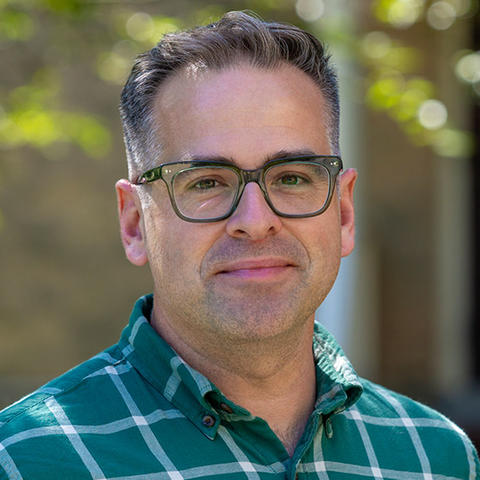Dual Honors for Anagha Aneesh '24

Photo by Patrick Montero.
Details
The physics and chemistry double major was simultaneously awarded a Fulbright Scholarship and an NSF Graduate Research Fellowship, prompting a difficult choice.
For Anagha Aneesh ’24, activism and science go hand in hand.
Since high school, the physics and chemistry double major has been vocal in sounding the alarm about climate change, especially its disproportionate impact on marginalized communities. Now, she’ll use her recently awarded Fulbright Scholarship to travel to Germany and investigate the potential of redox flow batteries, a scalable and greener alternative to lithium-ion batteries that could help wean the world off fossil fuels.
In Jena, Germany, a city committed to achieving climate neutrality by 2035, Aneesh will work with Dr. Kevin Jablonka in the Helmholtz Institute for Polymers in Energy Applications (HIPOLE) at the University of Jena. There she plans to develop a machine learning model that can predict novel polymer structures to maximize activity in redox batteries. Aneesh also received a National Science Foundation Graduate Research Fellowship for this avenue, but opted to select the Fulbright opportunity because of the additional cultural and collaborative exchange opportunities it will present her.
“Conducting research is obviously a big part of being a scientist, but being in a new environment is just as important,” she says. “I feel that it can shape me as a person much more than going to grad school immediately after college would.”
Aneesh has lived in Chicago for most of her life, but she says that her true home is Kerala, India, where she was born and many of her family members live. When the most devastating floods in nearly a century struck the Indian state in 2018, it was a particularly difficult moment for her but one that catalyzed her resolve to act.
“As we watched Indian news channels and stood in horror as the flood slowly swallowed everything, I remember my mom and I taking turns frantically calling each family member to ask, ‘How high is the water now?’” Aneesh recalls. “It left me asking myself, how can I fight to preserve communities like my home?”
Watching helplessly on TV as the catastrophic events unfolded half a world away propelled Aneesh into the world of activism and grassroots organizing. Throughout high school, she participated in numerous marches organized by Fridays for Future, the global climate-focused organization that grew from then-15-year-old Greta Thunberg’s climate strike. Marching through the streets of Chicago and Grant Park in the name of climate justice with thousands of her peers, she says, was an “insane experience.”
After arriving at Haverford, Aneesh says she learned that climate activism does not always require marching in the street or engaging in political lobbying. Science, she says, can be a critical component of the fight. “I remember a pivotal moment in my second-year chemistry lab course when my professor said, ‘We have to ask ourselves constantly: Is the chemistry we’re doing helping or hurting the environment? If it’s not helping, what can we do to change that?’” Aneesh recalls.
That was former Visiting Professor of Chemistry Grant Spoors, who first taught her about the deleterious effects of heavy metal mining, a requirement for lithium-ion batteries, on the environment. Aneesh has also been guided at Haverford by Associate Professor of Chemistry Clyde Daly, Aneesh’s research mentor, who she calls her “most influential person at Haverford.”
She’s also received significant support from Professor of Physics and Astronomy Karen Masters, who has helped Aneesh overcome what she describes as feelings that, as a woman, she doesn’t belong in her chosen fields. “As a woman of color in the hard sciences, sometimes it's easy to experience imposter syndrome. She’s been a consistent presence throughout my time at the college,” Aneesh says of Masters.
When her Fulbright concludes next June, Aneesh says she’ll be equipped to pursue a PhD in theoretical chemistry with aims to eventually develop machine learning tools that can be applied to renewable materials science.
“While I’m passionate about climate change, I’m also equally passionate about computational modeling,” Aneesh says.
Aneesh is one of four Fords to be accepted into the prestigious Fulbright program for the 2024-2025 academic year. Learn more about their plans.
More information on the Fulbright U.S. Student program is available online at us.fulbrightonline.org. Applications for the 2025-2026 grant cycle are now open, with the application deadline for Haverford students and alums on September 3, 2024. Those interested in applying should contact Director of Fellowships Jason Chan to learn more.




